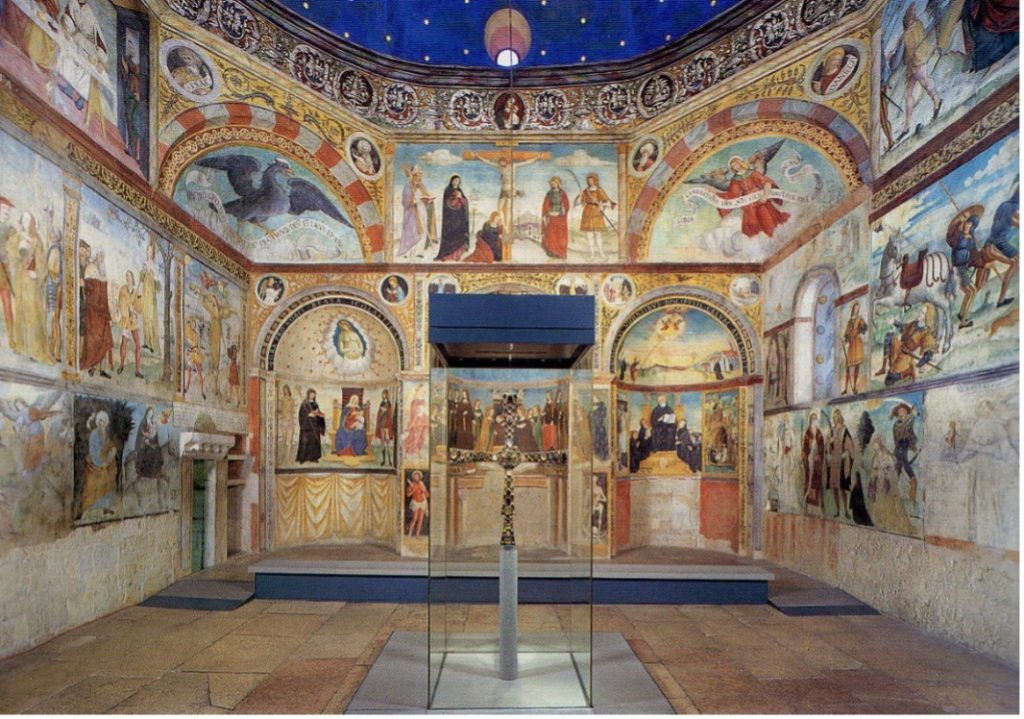
Interior of the medieval church of Santa Maria in Solario – Santa Giulia Museum Complex, Brescia, Italy
Source: Archivio fotografico Musei di Brescia
The Project “Data Science for Brescia – Arts and Cultural Places” (DS4BS) has the main objective to increase knowledge about the way people visit the cultural places (museums, theaters, monuments and historic buildings) in the city of Brescia, in order to support institutions and decision makers. Special attention is devoted to the experimentation of new ways for public detection and engagement, exploring cultural attitudes and perceptions, and developing new forms of accessibility to culture, also with reference to the cultural tourism.
Scientific coordinator: Marica Manisera
Participants:
Maurizio Carpita, Paola Zuccolotto, Enrico Ripamonti, Manlio Migliorati, Riccardo Ricciardi, Selene Perazzini, Ambra Macis (DMS-StatLab, Department of Economics and Management, University of Brescia)
Devis Bianchini, Barbara Rita Barricelli, Daniela Fogli, Massimiliano Garda (Department of Information Engineering, University of Brescia)
To achieve the goals of DS4BS, a Data Science approach, combining the use of big data and new technologies with complex statistical methods and predictive tools, is developed following two integrated research lines.
The first research line is devoted to test innovative methods of integration and analysis of big data from mobile phone network systems will be tested, in order to collect information useful for monitoring visits to cultural sites in the city of Brescia. To this aim, an original multi-stage approach for high-dimensional data is used, which permits to estimate the number of phone users for different reference days by means of the Histogram of Oriented Gradients algorithm for data dimensionality reduction, and a mix of k-means and Functional Data Analysis Model-Based Clustering methods for profiling time periods. The focus is on people movements between cultural places and along cultural itineraries.
The second research line is devoted to evaluate the experience of people during their visit to artistic and cultural places, also in light of innovative and digital initiatives promoted by museums in the COVID-19 era. The focus will be on the persons’ sensory experiences during the visit to the museums. We start from the collection of digital data by delivering survey questionnaires via apps running on smartphones. This data is used to quantify the sensing experience of visitors in front of artworks, resorting to phenomena like synesthesia and ideasthesia, in which activation of concepts evoke sensory feelings. The resulting data will be analysed by means of statistical methods of multivariate data analysis conceived to deal with survey data, specifically with Likert-type scales and rating-point semantic differential scales. The sensing experience quantification of visitors, properly integrated with other information about the visitors’ movements along cultural itineraries, multimedia contents on artworks and their tailoring towards different categories of visitors, will contribute to provide a holistic vision of artworks as smart objects, that is, autonomous physical digital objects augmented with sensing capabilities and enriched with a huge variety of multimedia content. In this Project, smart objects representation will be used to support museum professionals in preparing new cultural itineraries for visitors, without requiring specific technological skills, and to give visitors personalized exploration of cultural heritage on their personal smartphone. Experimentation will be performed in museums managed by Fondazione Brescia Musei.
The DS4BS Project favors experimentation by public, non-profit and private organizations interested in new forms of visitors’ experience with arts and cultural places based on the most advanced information and telecommunication technologies (4G/5G, GPS and smartphone apps); these technologies do not require appreciable investments for the purchase of specific devices as audio-guide recorders and 3D glasses and promote social distancing, thus being useful not only to reduce costs but also to moderate, for example, epidemic risks such as that caused by COVID-19 pandemic.
Integration of big data from antenna networks and from apps installed on smartphones by visitors of cultural places makes it possible to produce new knowledge, useful for guiding policies and decision-making processes with the aim to enhance the quality of their offers and services, with positive impact on citizens, cultural tourism, society and economy.
The DS4BS Project has received the endorsement of the Municipality of Brescia (ITIS – Information Technology, Innovation and Statistics Sector) and the Fondazione Brescia Musei, and is part of the research activities dedicated by the University of Brescia to support the important event planned for 2023, when Bergamo and Brescia will be the Italian Capital of Culture.
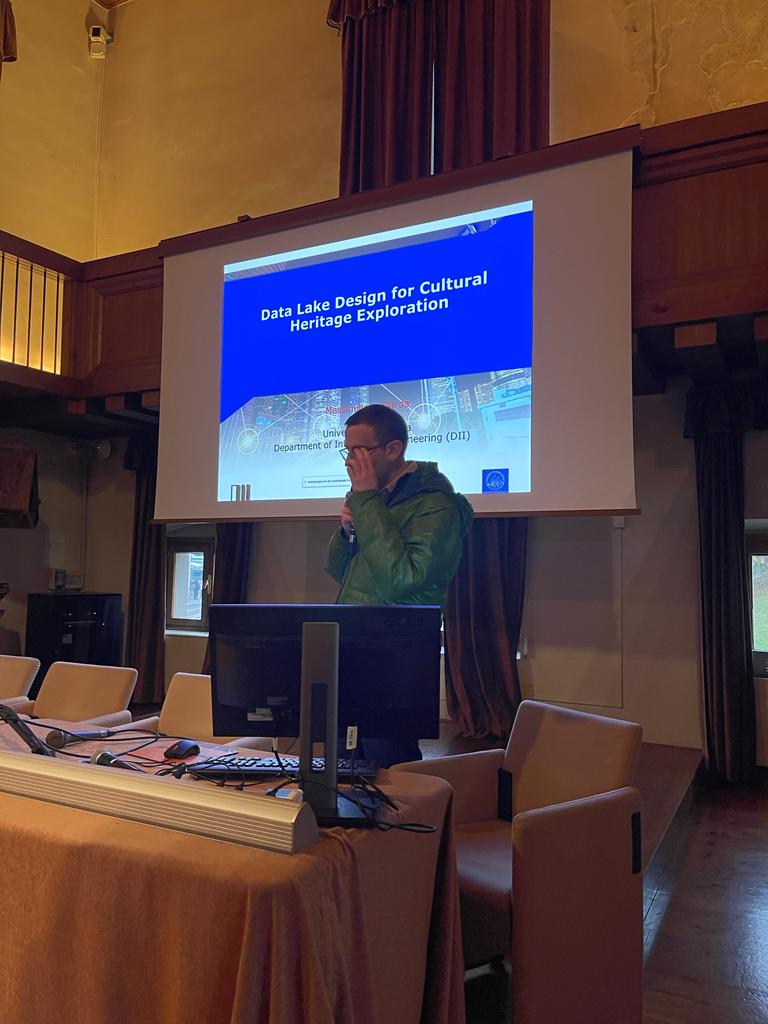
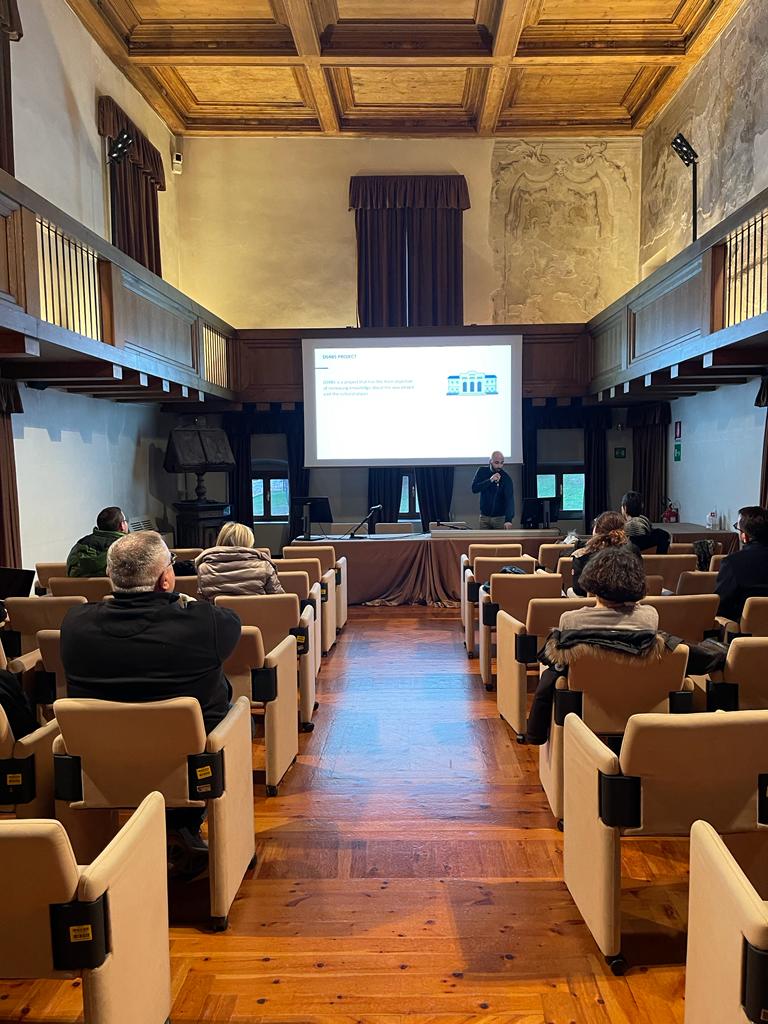
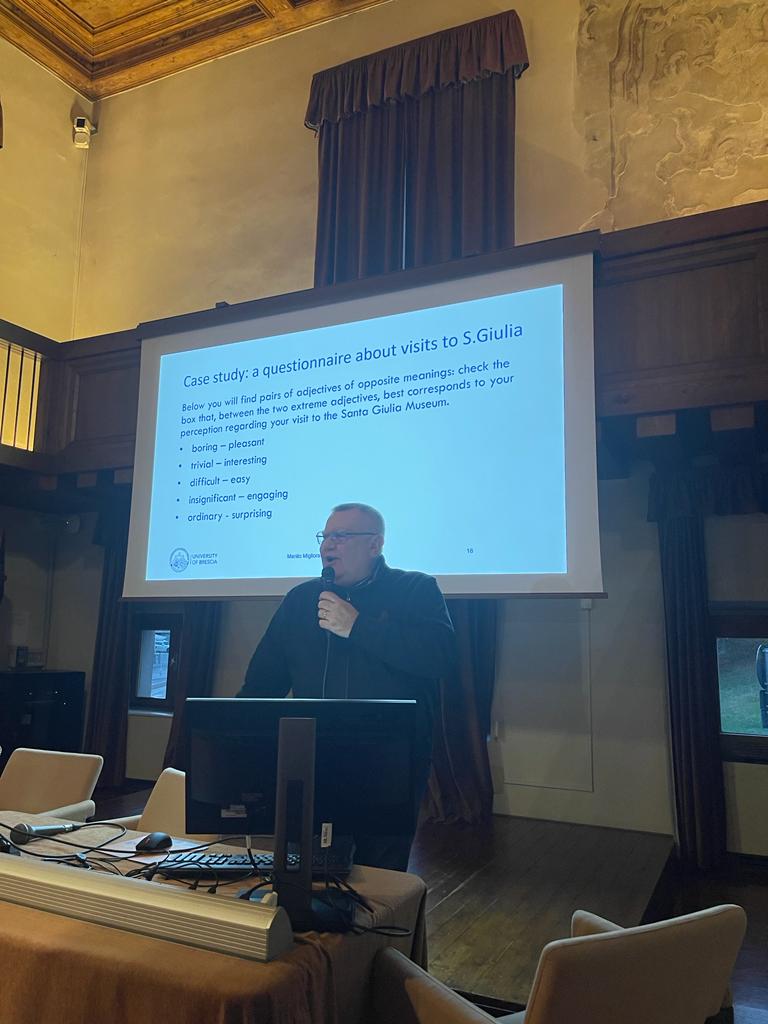
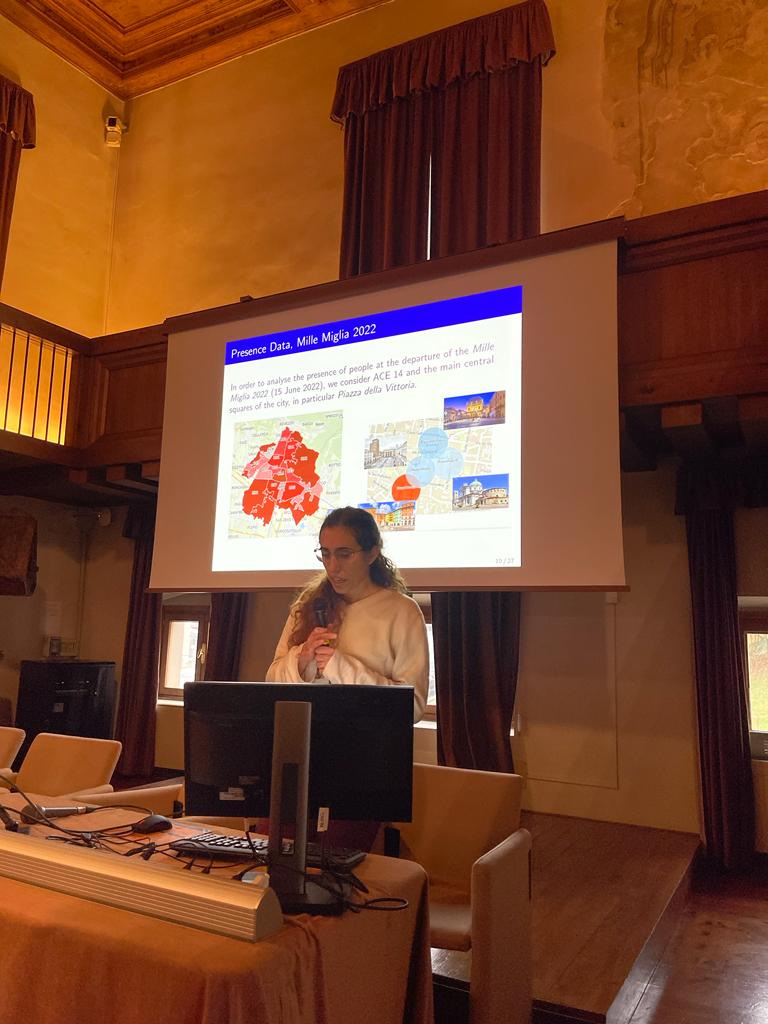






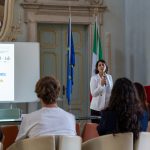
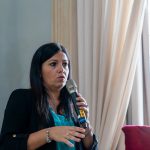
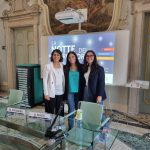

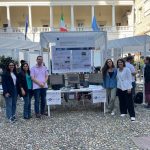
Master degree thesis of Francesca Ghiglia (supervisor: Paola Zuccolotto, co-supervisor: Marica Manisera) – 2023
Bachelor degree thesis of Paolo Roberti (supervisor: Enrico Ripamonti) – 2023
Bachelor degree thesis of Sara Iustoni (supervisor: Marica Manisera) – 2023
Master degree thesis of Elena Romano (supervisor: Paola Zuccolotto, co-supervisor: Matteo Ventura) – 2023
Master degree thesis of Paolo Vezzoli (supervisor: Paola Zuccolotto, co-supervisor: Marica Manisera) – 2023
Bachelor degree thesis of Daiana Marella (supervisor: Enrico Ripamonti) – 2023
Bachelor degree thesis of Michael Olivari (supervisor: Enrico Ripamonti) – 2023
Master degree thesis of Alessandro Salvetti (supervisor: Paola Zuccolotto, co-supervisor: Marica Manisera) – 2022
Master degree thesis of Martina Baga (supervisor: Paola Zuccolotto, co-supervisor: Marica Manisera) – 2022
Bachelor degree thesis of Federica Alberti (supervisor: Marica Manisera) – 2022
Bachelor degree thesis of Chiara Avanzi (supervisor: Marica Manisera) – 2022
Bachelor degree thesis of Mattia Natali (supervisor: Enrico Ripamonti) – 2022
Bachelor degree thesis of Elisa Rossi (supervisor: Enrico Ripamonti) – 2022
Master degree thesis of Federica Paderni (supervisor: Paola Zuccolotto, co-supervisor: Cristian Pelizzari) – 2021
Master degree thesis of Federico Tonsi (supervisor: Marica Manisera, co-supervisor: Paola Zuccolotto) – 2021
Thesis Slides Video Webinar Slides Webinar
Master degree thesis of Alessandro Tonsi (supervisor: Marica Manisera, co-supervisor: Paola Zuccolotto) – 2021
Thesis Slides Video Webinar Slides Webinar
Master degree thesis of Giulia Zanoletti (supervisor: Paola Zuccolotto, co-supervisor: Marica Manisera) – 2019
Conference ASA – STATISTICS FOR HEALTH AND WELL-BEING, Brescia 25th-27th September 2019 (Book of abstracts, page 25)
Master degree thesis of Loredana Scassa (supervisor: Marica Manisera, co-supervisor: Paola Zuccolotto) – 2019
Conference ASA – STATISTICS FOR HEALTH AND WELL-BEING, Brescia 25th-27th September 2019 (Book of abstracts, page 24)
Master degree thesis of Elisa Cirillo (supervisor: Paola Zuccolotto, co-supervisor: Marica Manisera) – 2019
Conference ASA – STATISTICS FOR HEALTH AND WELL-BEING, Brescia 25th-27th September 2019 (Book of abstracts, page 25)
Master degree thesis of Paola Biggi (supervisor: Marica Manisera, co-supervisor: Paola Zuccolotto) – 2019
Conference ASA – STATISTICS FOR HEALTH AND WELL-BEING, Brescia 25th-27th September 2019 (Book of abstracts, page 24)
Master degree thesis of Maddalena Troletti (supervisor: Paola Zuccolotto, co-supervisor: Marica Manisera) – 2018
Master degree thesis of Esmeralda Rossi (supervisor: Paola Zuccolotto, co-supervisor: Eugenio Brentari) – 2018